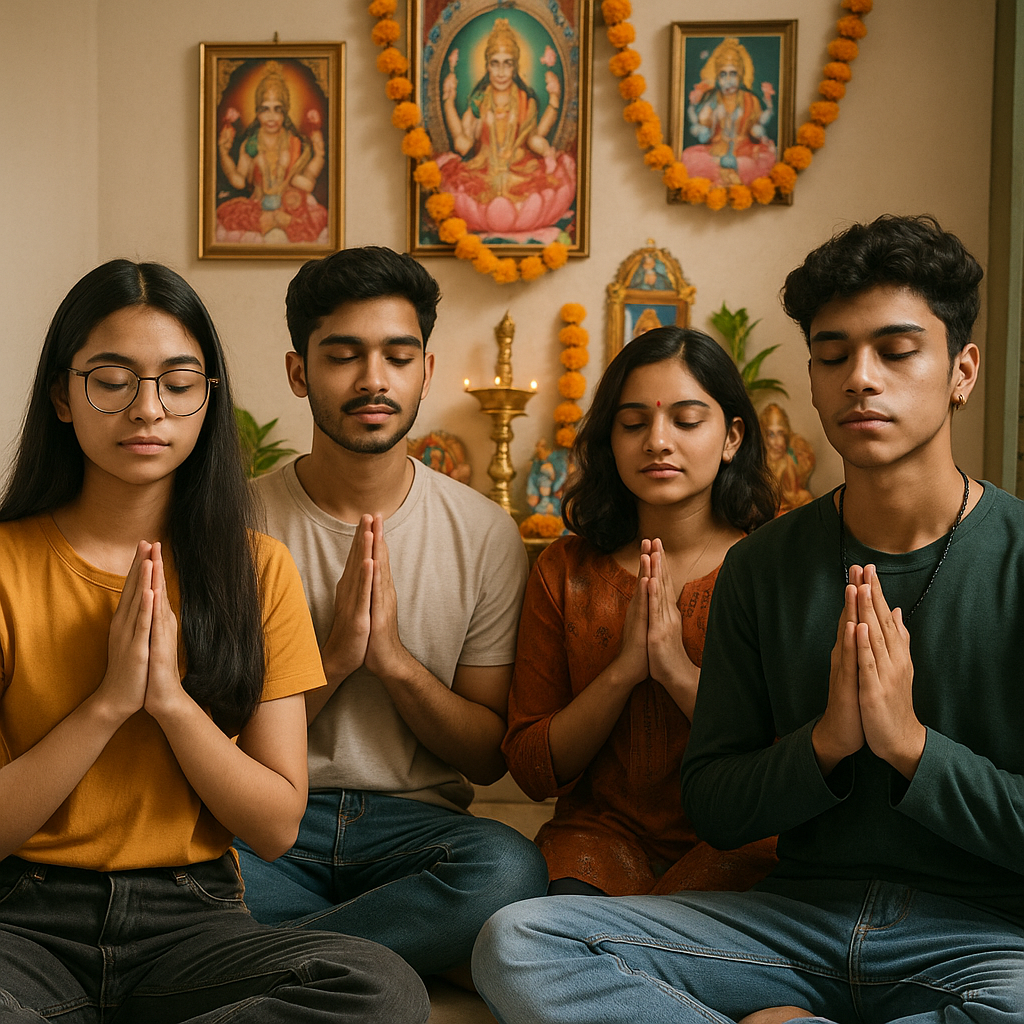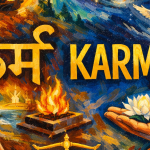Youth & Spirituality: How Gen Z in India Is Reimagining Religion
India’s Gen Z — born between the late 1990s and early 2010s — stands at a fascinating crossroads. They are digital natives, raised in a world of global connectivity, yet deeply rooted in the cultural and spiritual soil of India. Unlike the generations before them, they are not turning away from faith; they are redefining it. For India’s youth, spirituality is no longer confined to rituals or temple visits — it is about mindfulness, personal growth, and finding meaning in a rapidly changing world.
From Rituals to Reflection
Traditionally, religion in India has been associated with inherited practices — family pujas, festivals, fasts, and temple visits. But Gen Z is approaching faith with curiosity rather than obligation. They question, explore, and reinterpret. A young person in Delhi might perform yoga and meditation as a form of prayer, while another in Mumbai might find spiritual calm in music or volunteering.
This generation does not reject rituals altogether, but they seek the why behind them. Many have grown up watching their parents follow traditions without always understanding their deeper meaning. Now, they want to connect with the essence — the inner purpose — of faith. Spirituality for them is not about following rules, but about feeling connected to something larger than themselves.
The Digital Dharma: Faith in the Online Era
The internet has become the new satsang hall. Platforms like Instagram, YouTube, and podcasts are filled with spiritual content — from short Gita lessons to Buddhist mindfulness practices. Influencers and spiritual teachers now reach millions of young followers online, blending ancient wisdom with modern expression.
Interestingly, this digital engagement has made spirituality more inclusive. Gen Z doesn’t view religion through a sectarian lens. A young Indian today might read the Bhagavad Gita, practice Zen meditation, and also attend a Christian youth fellowship — all without feeling contradictory. The boundaries between religions are becoming more fluid as young people look for universal values like peace, kindness, and authenticity.
Mental Health and the Search for Meaning
The post-pandemic world has seen rising conversations around anxiety, loneliness, and burnout — especially among the youth. In response, many young Indians are turning to spiritual practices as tools for emotional balance. Meditation, chanting, gratitude journaling, and reading spiritual literature have become part of their self-care routines.
For Gen Z, spirituality offers a safe space away from the chaos of social media and competition. It’s not just about worshipping deities, but about healing from within. Apps that teach breathing techniques or guided meditations have become as popular as entertainment platforms. In a sense, spirituality has evolved into a form of mental wellness, connecting ancient Indian wisdom to modern psychology.
Questioning Without Rejecting
Unlike earlier generations, today’s youth are not afraid to question religious authorities or traditional dogmas. But their questioning doesn’t stem from rebellion — it comes from a desire for understanding. Many young Indians are studying scriptures with fresh eyes, exploring Vedanta, Buddhism, or Sufism not as rigid belief systems, but as philosophies that help navigate life.
They are comfortable calling themselves “spiritual but not religious.” For them, the divine is not confined to idols or rituals but is seen in acts of compassion, nature, and human connection. This openness reflects a larger cultural evolution — one where faith becomes personal, inclusive, and adaptable to modern life.
Social Action as a Spiritual Path
Another striking feature of Gen Z spirituality in India is the blending of service and faith. Many young people view helping others, protecting the environment, or fighting for social justice as spiritual duties. Inspired by teachings like “Seva Parmo Dharma” (service is supreme duty), they see compassion and activism as expressions of their inner faith.
Youth-led initiatives that clean rivers, distribute food, or promote mental health awareness often describe their motivation as “spiritual fulfillment.” In their eyes, true devotion is not limited to temples but extends to how one treats people and the planet.
Reimagining Community and Connection
While older generations found community in religious institutions, Gen Z is building spiritual communities online and offline in new ways. Meditation circles in cafés, book clubs around Indian philosophy, or yoga retreats in the Himalayas have become the modern temples of youth spirituality. These spaces are open, gender-inclusive, and often free from hierarchical structures.
There is also a growing interest in rediscovering India’s indigenous spiritual practices — tribal healing, folk traditions, and ancient chants — as young Indians reconnect with their cultural roots in a contemporary way. For them, faith is no longer about formality; it’s about feeling.
A New Face of Indian Faith
India’s Gen Z is not abandoning religion — they are renewing it. They are weaving together technology, tradition, and personal experience to create a more conscious, compassionate form of spirituality. This new approach is fluid, flexible, and free from fear.
In their hands, faith becomes a tool for self-awareness and social harmony rather than a set of boundaries. By embracing universal values and digital platforms, the youth of India are showing that spirituality is not old-fashioned — it is timeless.
~Religion World Bureau










